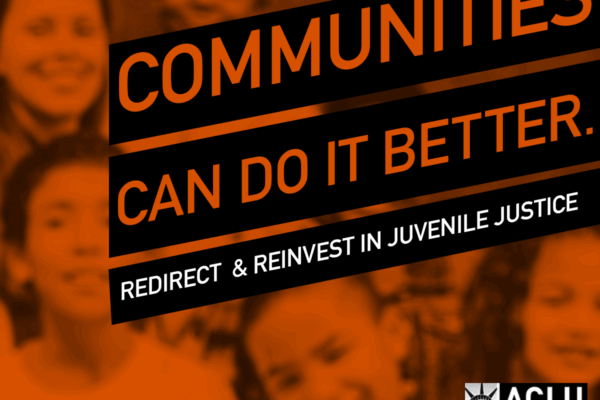West Virginia took important first steps last year reforming our state’s broken juvenile justice system. With overwhelming support from the state Legislature, we were able to reform harmful truancy laws that locked kids up after missing just five days of school. And the Governor’s lauded omnibus juvenile justice reform bill passed that put the focus on serving kids within their communities instead of unnecessarily locking them up.
Yet, West Virginia’s DHHR is now fast-tracking new out-of-home institutions for children with mental health needs, some of which will hold up to 70 kids from as young as 4 years old up to age 21. Shockingly, these facilities will charge up to $500 a day for each institutionalized child —- costing taxpayers $182,500 per child annually. And at full capacity, the 70-bed facility proposed in Logan will cost West Virginia taxpayers $12.78 million dollars a year. This gross misuse of funds is troubling especially when effective community-based treatment costs as little as $75 a day.
DHHR’s decision to pursue more out-of-home placement for youth with behavioral and mental health needs is also troubling in light of recent U.S. Department of Justice findings. The Justice Department found that West Virginia is in violation of the Americans with Disabilities Act and Title VI of the Civil Rights Act because it sends far too many youth with mental health needs to institutions instead of providing them services that would allow them to stay at home.
The state was projected to save $20 million as a result of last year’s juvenile justice reforms, but these savings won’t exist if new youth out-of-home facilities are built. Now — more than ever — we need to redirect and reinvest these savings back into our kids’ futures.
To fully realize the promise of last year’s reform we must not build more institutions. Instead, we must adequately fund community-based alternatives where kids can find help instead of unnecessarily being sent away. Communities can better support our youth and do so at a fraction of the cost. Community behavioral and mental health treatment, job training and placement, mentoring, and restorative justice programs like Teen Court work if we fund them.
States from Ohio to Alabama have successfully reformed their juvenile justice systems by investing in these programs. West Virginia should follow in their footsteps and make the commitment to change our punitive, expensive, and ineffective system into one that provides youth with the tools they need to succeed instead of setting them up for failure.
At the American Civil Liberties Union of West Virginia, we believe in a future where all West Virginia youth can meet their full potential. We urge DHHR Secretary Karen Bowling to halt the fast-tracking of expensive youth mental institutions, and instead redirect and reinvest existing funds into community-based programs. Communities can do it better. Let’s give them the funds to make it a reality.
Join us September 14 & 15 in Charleston at the Our Children Our Future Statewide Policy Summit when we present why redirecting and reinvesting existing funds into community-based programs provides the best chance for West Virginia youth. Voting to be part of the 2015 Our Children Our Future Platform begins at the Summit - We need your voice and vote to make it happen! Register Today!

